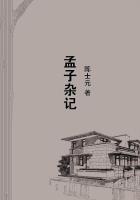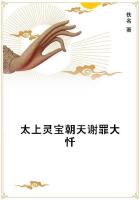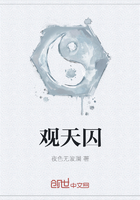Pyncheon's ambitious projects. "But first, sir, if you desire tidings of this lost document, I must crave the favor of a little talk with your fair daughter Alice.""You are mad, Maule!" exclaimed Mr. Pyncheon haughtily; and now, at last, there was anger mixed up with his pride. "What can my daughter have to do with a business like this?"Indeed, at this new demand on the carpenter's part, the proprietor of the Seven Gables was even more thunder-struck than at the cool proposition to surrender his house. There was, at least, an assignable motive for the first stipulation; there appeared to be none whatever for the last. Nevertheless, Matthew Maule sturdily insisted on the young lady being summoned, and even gave her father to understand, in a mysterious kind of explanation,--which made the matter considerably darker than it looked before,--that the only chance of acquiring the requisite knowledge was through the clear, crystal medium of a pure and virgin intelligence, like that of the fair Alice. Not to encumber our story with Mr. Pyncheon's scruples, whether of conscience, pride, or fatherly affection, he at length ordered his daughter to be called. He well knew that she was in her chamber, and engaged in no occupation that could not readily be laid aside; for, as it happened, ever since Alice's name had been spoken, both her father and the carpenter had heard the sad and sweet music of her harpsichord, and the airier melancholy of her accompanying voice.
So Alice Pyncheon was summoned, and appeared. A portrait of this young lady, painted by a Venetian artist, and left by her father in England, is said to have fallen into the hands of the present Duke of Devonshire, and to be now preserved at Chatsworth; not on account of any associations with the original, but for its value as a picture, and the high character of beauty in the countenance.
If ever there was a lady born, and set apart from the world's vulgar mass by a certain gentle and cold stateliness, it was this very Alice Pyncheon. Yet there was the womanly mixture in her; the tenderness, or, at least, the tender capabilities. For the sake of that redeeming quality, a man of generous nature would have forgiven all her pride, and have been content, almost, to lie down in her path, and let Alice set her slender foot upon his heart. All that he would have required was simply the acknowledgment that he was indeed a man, and a fellow-being, moulded of the same elements as she.
As Alice came into the room, her eyes fell upon the carpenter, who was standing near its centre, clad in green woollen jacket, a pair of loose breeches, open at the knees, and with a long pocket for his rule, the end of which protruded; it was as proper a mark of the artisan's calling as Mr. Pyncheon's full-dress sword of that gentleman's aristocratic pretensions. A glow of artistic approval brightened over Alice Pyncheon's face; she was struck with admiration--which she made no attempt to conceal--of the remarkable comeliness, strength, and energy of Maule's figure.
But that admiring glance (which most other men, perhaps, would have cherished as a sweet recollection all through life) the carpenter never forgave. It must have been the devil himself that made Maule so subtile in his preception.
"Does the girl look at me as if I were a brute beast?" thought he, setting his teeth. "She shall know whether I have a human spirit;and the worse for her, if it prove stronger than her own!""My father, you sent for me," said Alice, in her sweet and harp-like voice. "But, if you have business with this young man, pray let me go again. You know I do not love this room, in spite of that Claude, with which you try to bring back sunny recollections.""Stay a moment, young lady, if you please!" said Matthew Maule.
"My business with your father is over. With yourself, it is now to begin!"Alice looked towards her father, in surprise and inquiry.
"Yes, Alice," said Mr. Pyncheon, with some disturbance and confusion. "This young man--his name is Matthew Maule--professes, so far as I can understand him, to be able to discover, through your means, a certain paper or parchment, which was missing long before your birth. The importance of the document in question renders it advisable to neglect no possible, even if improbable, method of regaining it. You will therefore oblige me, my dear Alice, by answering this person's inquiries, and complying with his lawful and reasonable requests, so far as they may appear to have the aforesaid object in view. As I shall remain in the room, you need apprehend no rude nor unbecoming deportment, on the young man's part; and, at your slightest wish, of course, the investigation, or whatever we may call it, shall immediately be broken off.""Mistress Alice Pyncheon," remarked Matthew Maule, with the utmost deference, but yet a half-hidden sarca** in his look and tone, "will no doubt feel herself quite safe in her father's presence, and under his all-sufficient protection.""I certainly shall entertain no manner of apprehension, with my father at hand," said Alice with maidenly dignity. "Neither do Iconceive that a lady, while true to herself, can have aught to fear from whomsoever, or in any circumstances!"Poor Alice! By what unhappy impulse did she thus put herself at once on terms of defiance against a strength which she could not estimate?















